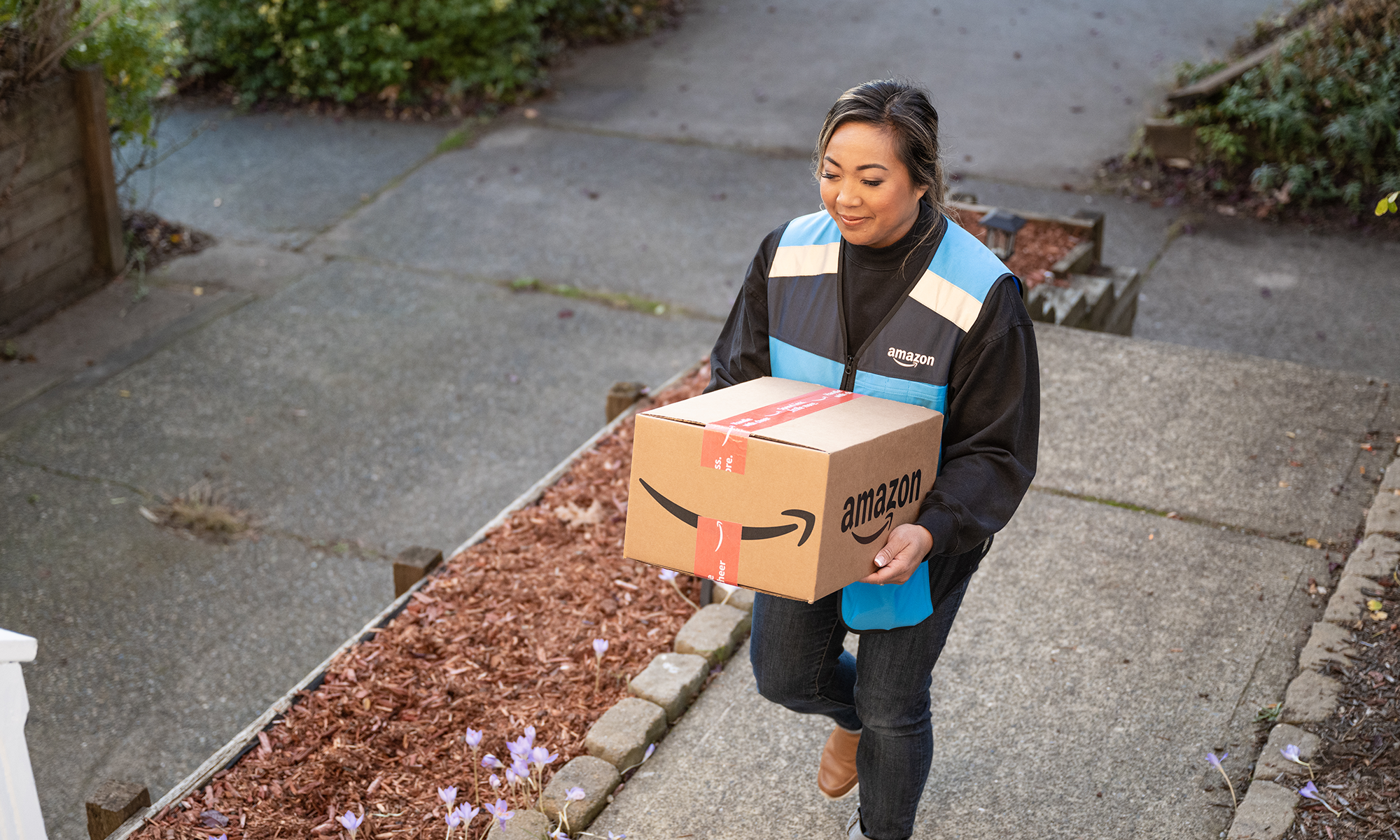The holiday shopping season kicked off with consumers spending more money online than ever before on each of the five days from Thanksgiving Day to Cyber Monday. That bodes well for Amazon.com (AMZN 2.38%), which says Cyber Monday was its biggest sales day ever globally.
The rising tide of consumerism will lift many boats this year, and analysts think that Best Buy, lululemon athletica, and Target had some of the best results for the unofficial start to the holiday season. Still, the more Amazon sells, the fewer discretionary dollars are available to spend at other sites. Yet one retailer is actually rooting for Amazon to have a blowout Christmas season: Kohl's (KSS +0.44%).

UPS says this Christmas will see more returns than ever before. Image source: UPS.
Seeking a return engagement
Kohl's firmly tied its reins to the e-commerce giant when it agreed to serve as a package returns drop-off point for Amazon purchases. By having Amazon customers come to its stores to return their purchases, Kohl's is hoping they'll linger afterward and shop while there.
There is circumstantial evidence that the package return program is increasing foot traffic. Numerous geolocation data analyses find that guest counts at Kohl's have increased significantly since the program began, and CEO Michelle Gass insists the Amazon partnership "is driving incremental traffic into our stores."
So a big Christmas for Amazon could result in a big January for Kohl's as consumers surge to return unwanted gifts. There's good reason to think this year could be the biggest returns season ever.
Fewer days to shop
The holiday shopping season is typically defined by the number of days between Thanksgiving and Christmas. Because of a quirk in the calendar, it is unusually short this year compared with last year. The last time there were only 26 shopping days in the season (six fewer than last year) was in 2013, and it created all kinds of mayhem for retailers. Worse, e-commerce has tripled in size in those six years.
Back then, total holiday online spending between Nov. 1 and Dec. 31 clocked in at $46.5 billion, up 10% over 2012. This year, analysts expect e-commerce sales to total $143.7 billion, a 14% increase over 2018, and Amazon will get the lion's share.
The online retailer says it is expecting fourth-quarter sales to increase between 11% and 20% this year, to a range of $80 billion to $86.5 billion, fueled by offering free one-day shipping to members of its Prime loyalty program.
Many happy returns
Amazon will be handling more of its own deliveries this year since it has built out a sprawling logistics and transportation network. But FedEx, UPS (UPS +3.64%), and the postal service are also gearing up for the onslaught.
It wasn't pretty for them the last time there were so few days in the shopping season. However, the carriers have invested billions of dollars in their systems since then and ought to be much better prepared for the holiday rush. They're also ready for the returns that follow.
UPS says Jan. 2 (which it dubs National Returns Day) will once again be the biggest package-return day of the year with 1.9 million transactions, a 26% year over year increase. But return volumes will be elevated throughout the season, driven in part by retailers offering deals early.
Kevin Warren, UPS chief marketing officer, issued a statement saying, "Gone are the days where returns were isolated to January -- today's empowered consumers will be sending packages back to retailers all season long."
UPS expects 1.6 million packages a day to be returned during the week leading up to Christmas.
Rooting for the competition
That's music to Kohl's ears. The department store's third-quarter earnings report was a disappointment, with comparable-store sales rising just 0.4% for the period, half of the 0.8% increase analysts were expecting.
While this result could indicate that the Amazon returns program isn't having the impact originally expected, Kohl's was only just ramping up the nationwide rollout last quarter. This holiday season ought to give investors a better indication of just how well the partnership is working. And it underscores why Kohl's is hoping Amazon has a very merry Christmas indeed.








